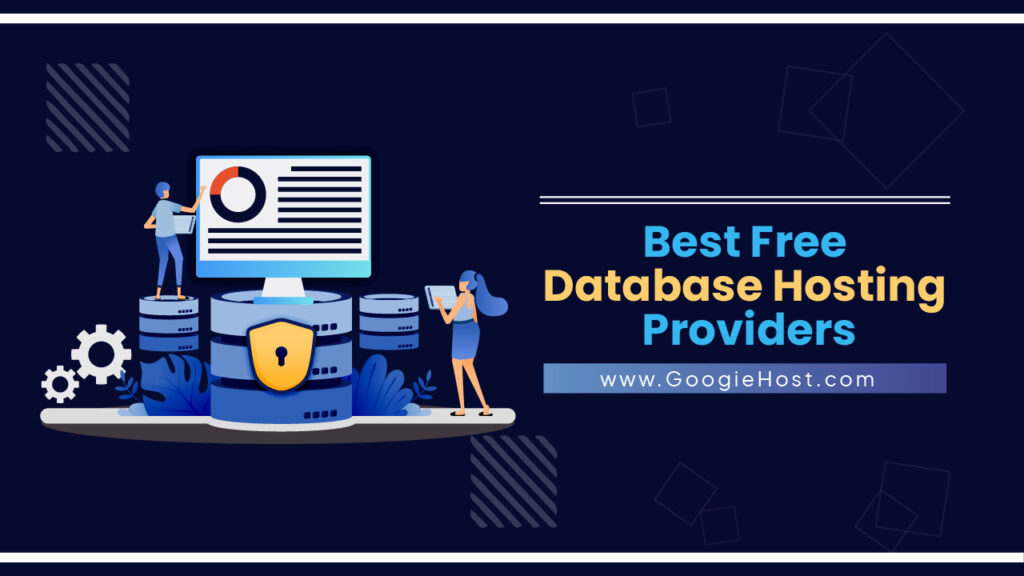Trick Elements to Seek in a Database Provider for Startups
Trick Elements to Seek in a Database Provider for Startups
Blog Article
Secret Features to Seek When Selecting a Database Service Provider
Picking a data source copyright is a crucial decision that can considerably affect your company's procedures and information administration technique. Amongst the necessary attributes to take into consideration are scalability alternatives, which make certain that your system can adjust to expanding demands.
Scalability Options
When choosing a database service provider, understanding scalability options is essential to guaranteeing that the chosen solution can suit future development. Scalability describes the capability of a database system to expand its ability and efficiency in action to boosted demand. There are two key kinds of scalability: vertical and horizontal.
Vertical scalability, or "scaling up," involves boosting a solitary server's resources, such as CPU, RAM, or storage space. This technique can be simple and cost-effective for smaller applications but might get to a limit where further upgrades are not practical or as well expensive.
Straight scalability, or "scaling out," includes adding extra web servers to distribute the load. This strategy permits better versatility and can accommodate substantial increases in information volume and customer web traffic (database provider). It is specifically helpful for cloud-based database options that can dynamically allocate sources based on need

Protection Procedures

When assessing safety and security measures, consider the implementation of security methods (database provider). Data-at-rest and data-in-transit file encryption are necessary to make sure that sensitive information continues to be safeguarded, even in case of a safety and security violation. In addition, try to find companies that provide strong verification systems, such as multi-factor authentication (MFA), to better improve access control
Normal safety audits and compliance with sector requirements, such as GDPR or HIPAA, are indicative of a provider's dedication to data defense. Moreover, inquire concerning their event response strategy; a robust strategy can minimize the effect of any possible safety and security case.
Performance Metrics
Evaluating performance metrics is essential for companies to guarantee that their picked database supplier meets functional needs. Secret efficiency metrics include feedback time, throughput, and scalability, which collectively establish the efficiency of data source procedures under varying tons.
Feedback time is crucial, as it mirrors just how rapidly the data source can refine queries and return results. Organizations must seek metrics that indicate typical feedback times throughout top and off-peak hours. Throughput, commonly gauged in transactions per second (TPS), supplies understanding right into the database's capability to manage high quantities of demands without efficiency degradation.
Scalability evaluates the data source's ability to expand with the company's demands. A durable data source provider ought to demonstrate straight and upright scaling capabilities, permitting seamless modifications as needs change. In addition, recognizing latency, particularly in distributed systems, can aid companies review the responsiveness of the database throughout different geographical locations.
Customer Support
Trusted customer assistance is a keystone of effective database management, offering companies with the support needed to maximize and fix issues efficiency. When choosing a database service provider, evaluating the degree of client assistance they use is important. A robust assistance system must include numerous channels of interaction, such as phone, email, and live chat, making sure that users can access aid whenever they need it.
Additionally, receptive support groups that are available 24/7 this article substantially improve the integrity of the database solution. Prompt feedback times and efficient resolution of concerns can considerably reduce downtime and boost total efficiency. It is additionally beneficial to take into consideration the availability of committed support workers, that can provide customized assistance based on a company's specific requirements.

Rates Structure
When taking into consideration a database copyright, the prices framework is a critical variable that can substantially influence an organization's spending plan and overall method. A transparent and versatile prices model is vital for straightening the database sets you back with business requirements this link - database provider. Organizations needs to evaluate whether the prices is based upon consumption, per individual, or a level price, as each model can produce various economic implications gradually
It is very important to evaluate any kind of added costs connected with the copyright's services, such as data storage charges, purchase prices, and support charges. Some suppliers might supply tiered pricing, allowing scalability as the organization grows, while others may enforce rigorous restrictions that could become costly as data demands boost.
Additionally, companies need to consider the long-term value of the data source solution. While lower initial prices can be appealing, they may not account for future upgrades, maintenance fees, or integration costs. Conducting a comprehensive cost-benefit analysis will help identify the most suitable rates framework that stabilizes assistance, efficiency, and scalability, ultimately ensuring that the picked data source supplier lines up with the organization's functional and economic goals.
Final Thought
In final thought, choosing a data source company demands careful factor to consider of various important features. Assessing efficiency metrics enables the identification of reliable data sources, and available consumer assistance enhances the general customer experience.
Selecting a database supplier is a crucial decision that can dramatically useful source impact your organization's operations and information management technique.When choosing a data source provider, understanding scalability choices is vital to ensuring that the chosen service can fit future growth. When choosing a data source copyright, evaluating the level of customer support they provide is vital.When thinking about a data source supplier, the rates framework is a crucial variable that can dramatically influence a company's spending plan and total approach. Performing a detailed cost-benefit evaluation will certainly assist determine the most appropriate prices structure that balances efficiency, scalability, and support, eventually making sure that the chosen database provider straightens with the company's monetary and operational objectives.
Report this page